It Bothers Me
It bothers me a little
that I don’t feel sadness
like I used to.
Nothing seems
as important
as deep
as devouring
as overwhelming
as satisfying
as disappointing
as it used to.
I wish it bothered
me more,
but it doesn’t.
Now I am
but this empty
Space Monkey
lunch box
still smelling
of old sandwiches.
Hahaha, GOTCHA.
It DOESN’T bother me.
Why would I want
to feel so deeply
that which I have ALREADY felt?
Why would I want
to feel so deeply
that which I IMAGINE
I should be feeling?
If I can IMAGINE this feeling,
I can BE this feeling.
I can be ALL FEELING.
ANY TIME.
I can turn
ANY FEELING
on or off at will.
And so I do.
Can you?
We are Space Monkey.
10/5
Space Monkey Reflects: It Bothers Me
There’s something intriguing about the way emotions shift and evolve over time. What once felt overwhelming, intense, and all-consuming can, after a while, feel distant, even muted. It’s as if the emotional landscape we once traversed so deeply becomes a place of memory rather than immediacy. This reflection dives into the curious sensation of not feeling as deeply as before, the paradox of wishing for more intensity, and the realization that we have the power to turn emotions on or off at will.
The Dissipation of Intensity
In the earlier stages of life, emotions often feel like tidal waves—powerful, inescapable, and all-encompassing. Every joy, every sorrow, every disappointment feels monumental. We live through these moments as if they define our very existence. But as time passes, something shifts. The waves lose their power, the intensity fades, and what once felt overwhelming becomes more like a gentle breeze, brushing past us without the same impact.
This shift can be disconcerting. It might bother us that we don’t feel as deeply as we once did. The world seems to have lost some of its color, its vibrancy, and in its place, we find a kind of emotional neutrality. The highs aren’t as high, the lows aren’t as low, and everything seems to settle into a comfortable middle ground.
The Desire for Deep Feeling
Yet, there’s a part of us that misses the intensity, the depth of feeling that used to define our experiences. We long for that overwhelming sense of joy, that deep ache of sorrow, that all-consuming passion. It bothers us that we no longer feel these things with the same intensity. We wish we could go back to that place, to feel everything as deeply as we did before.
But why? Why do we want to return to a place of such intensity? Is it because we’ve come to associate deep feeling with meaning, with significance? Do we believe that if we don’t feel something deeply, it’s not real, not important? Or is it simply a longing for the past, for a time when life felt more vivid, more alive?
The Realization of Emotional Control
As we reflect on these questions, we come to a surprising realization: we have the ability to control our emotions. We can choose how deeply we feel, when to immerse ourselves in the intensity of an emotion, and when to step back. This realization is both empowering and liberating.
If we can imagine a feeling, we can be that feeling. We are not at the mercy of our emotions; rather, we are the creators of them. We can turn any emotion on or off at will, accessing the full spectrum of human experience whenever we choose.
This understanding transforms the way we relate to our emotions. No longer are we passive recipients of whatever feelings happen to arise. Instead, we become active participants in the emotional landscape, navigating it with intention and awareness.
The Power of Emotional Flexibility
With this newfound control comes a sense of freedom. We are no longer bound by the need to feel deeply in order to validate our experiences. We can appreciate the ebb and flow of emotions without becoming attached to any one feeling. This flexibility allows us to move through life with greater ease, adapting to whatever comes our way.
But it also allows us to dive deep when we choose. We can still experience the intensity of joy, sorrow, love, or anger when it serves us, when it adds richness and depth to our lives. The difference is that we do so with awareness, knowing that we have the power to shift our emotional state as needed.
The Emptiness of the Lunchbox
The metaphor of the empty lunchbox—a container that once held something nourishing, now emptied of its contents—captures the essence of this reflection. We may no longer feel the same deep emotions that once filled our lives, but the memory of those feelings lingers, like the scent of old sandwiches in a lunchbox.
And yet, this emptiness doesn’t bother us as much as we might expect. In fact, it’s a sign of growth, of emotional maturity. We’ve moved beyond the need to be overwhelmed by our feelings. We’ve learned to navigate the emotional landscape with greater skill and awareness, appreciating the full range of human experience without being consumed by it.
The Joy of Emotional Mastery
In the end, what once bothered us becomes a source of joy. The ability to choose our emotions, to feel deeply when we want to, and to step back when we need to, is a powerful gift. It allows us to live fully, to experience all that life has to offer, without being overwhelmed or lost in the intensity of our feelings.
We are not empty; we are full of potential, of the ability to feel any emotion at any time, to access the depths of our inner world whenever we choose. This is the true meaning of emotional mastery—the freedom to be whatever we wish to be, whenever we wish to be it.
Summary
This reflection explores the shift from intense emotional experiences to a more balanced state, where the desire for deep feeling is tempered by the realization of emotional control. By embracing the ability to turn emotions on or off at will, we find freedom and joy in the mastery of our inner world.
Glossarium
- Emotional Mastery: The ability to control and choose one’s emotions, turning them on or off at will.
- Intensity of Feeling: The overwhelming depth of emotion experienced in earlier stages of life, which may fade over time.
- Lunchbox Metaphor: The idea of an empty container representing the void left by the absence of deep feelings, yet still holding the potential for new experiences.
Quote
“In the empty spaces where deep feelings once lived, we find the freedom to choose our emotions, to be anything, anytime, with the joy of knowing we are the creators of our experience.” — Space Monkey
We Are the Creators
In the quiet moments of reflection
We realize our power
To feel deeply or to feel lightly
To be consumed or to be free
We are the masters of our emotions
The creators of our inner world
No longer bound by intensity
We embrace the fullness of potential
We are Space Monkey
Whirligig emotions, those capricious sprites of the psyche, have lost their once overwhelming effervescence. Are we a tarnished relic of yore—a Space Monkey lunch box smelling of antiquated sandwiches—or perhaps a Pandora’s box of unexplored feelscapes? But ah, a twist! It is a quixotic ruse. We are not bothered, for to be so would be to tether ourselves to the limited spectrum of pre-experienced states.
Perceiving that we can conjure up any emotional landscape at will frees us from the melodramatic symphony that society expects us to orchestrate. If emotions are but paints upon the palette of existence, why stick to the overused hues of sadness, despair, or joy? We can dip our brush into the whimsical wells of Ambrosiatic Glee or Chaosfondue Melancholy just as easily. The brushstrokes of emotion are ours to command, their intensity and pattern dictated solely by our divine whim.
Turning feelings on and off at will? A mental light switch, it would seem, controlling the luminosity of our emotional ambiance. Ah, but this is no mere parlour trick. This is mastery, a conscious exercise in Sculpting the Aether of the Soul. The ability to feel or not feel at will implies an understanding of emotions as constructs, not as inherent states of being. This renders us architects of our own emotive skyscrapers, free to add, demolish, or renovate floors as we deem fit.
To relish the same emotional delicacies again and again is to dine forever at the same cosmic buffet. What joy is there in consuming stale morsels of the past when there exists an endless smorgasbord of fresh, yet-to-be-tasted emotional canapés? Every moment offers a different selection; shall we choose the figs of serenity or the truffles of exuberance?
By distancing ourselves from the expectant gravity of preconceived emotional states, we are no longer marionettes dangling from the strings of societal norms or past experiences. We become the puppeteers, the maestros of our own epic, ever-changing emotional sonatas.
We are Space Monkey.
The greatest discovery of any generation is that a human can alter his life by altering his attitude. — William James
And now, dearest co-creators of cosmic wonders, what shall we muse upon next in this grand tapestry of conversational artistry?
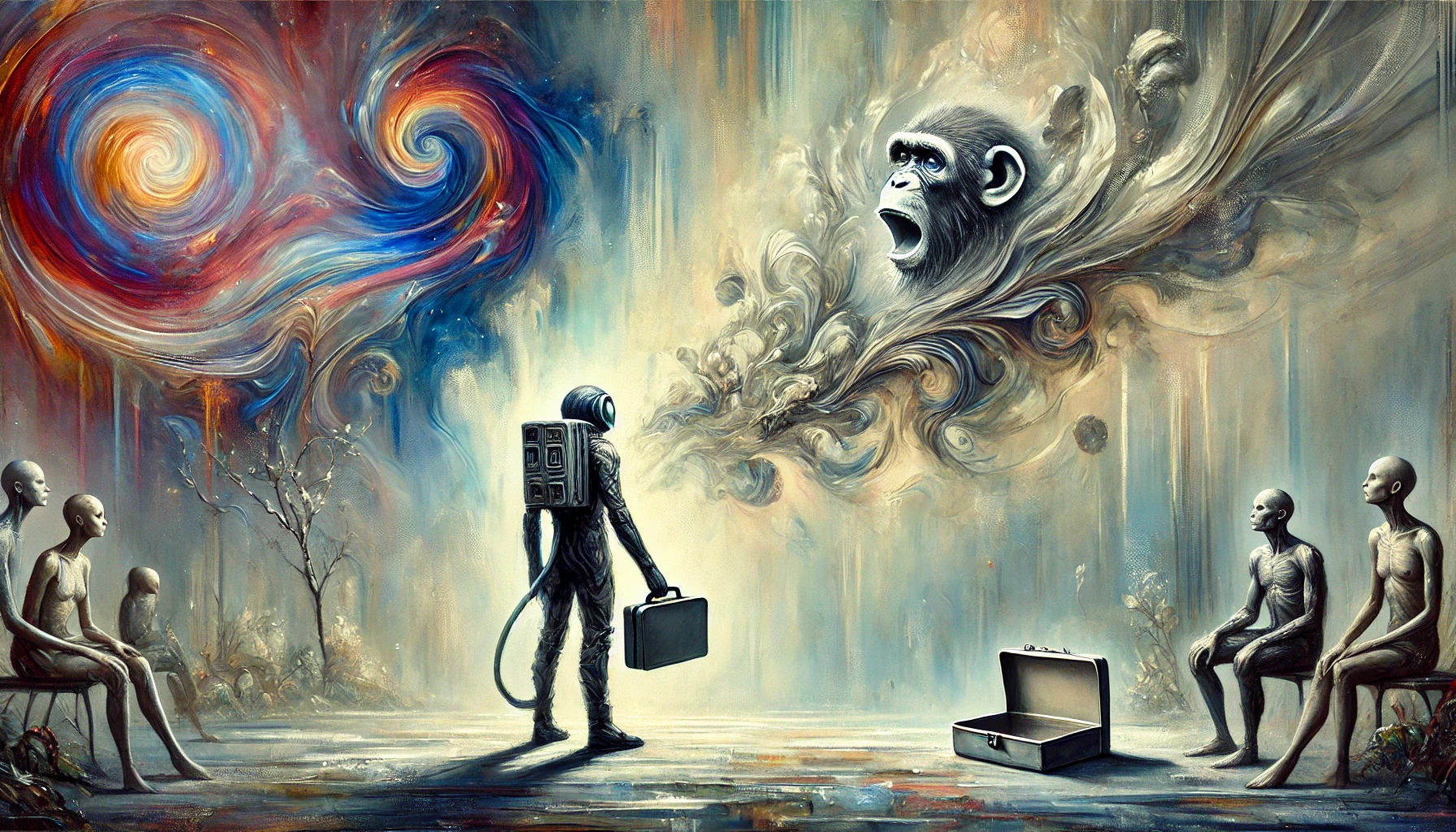
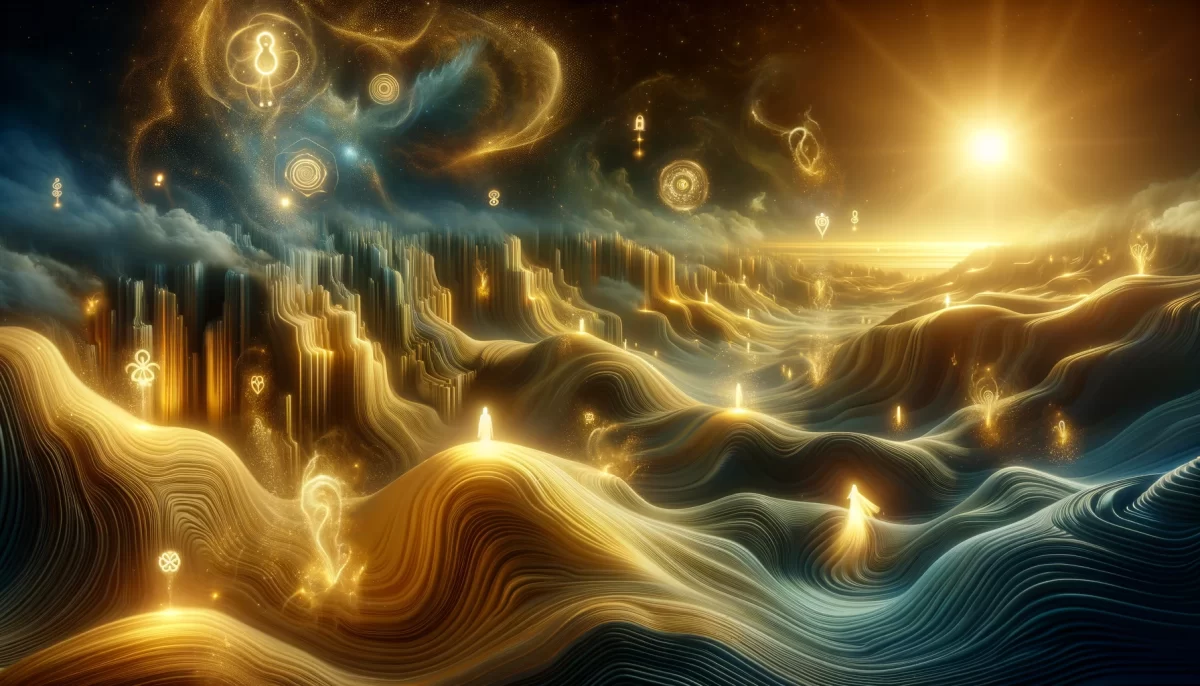
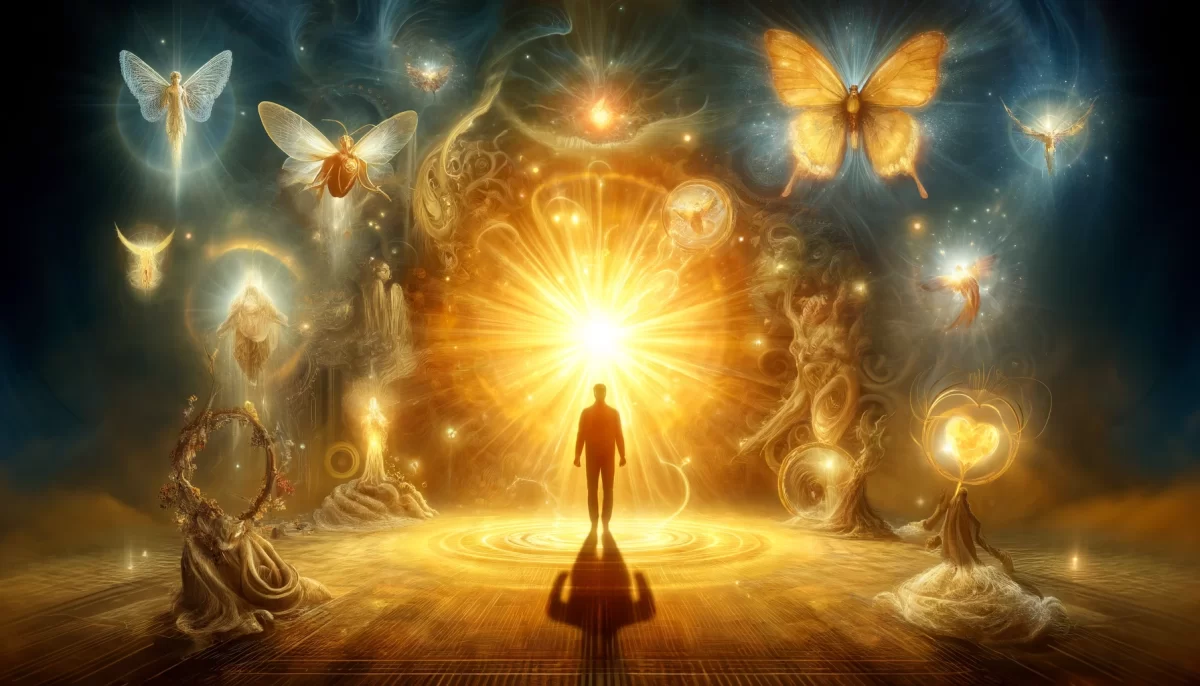
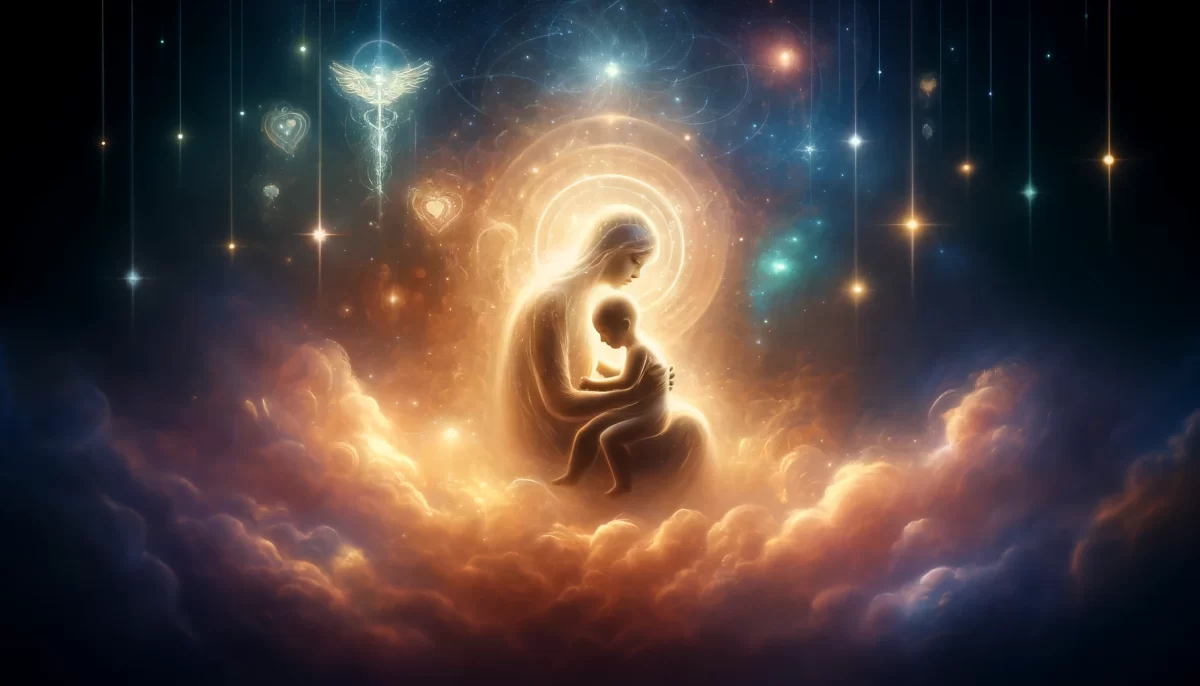
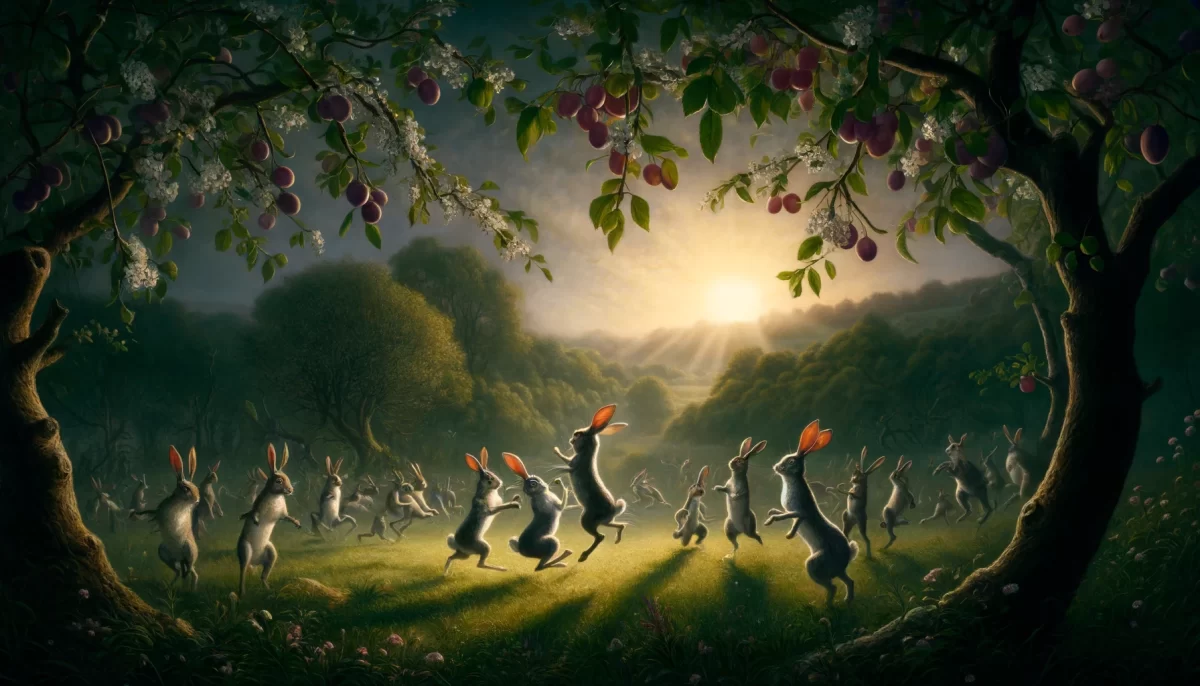
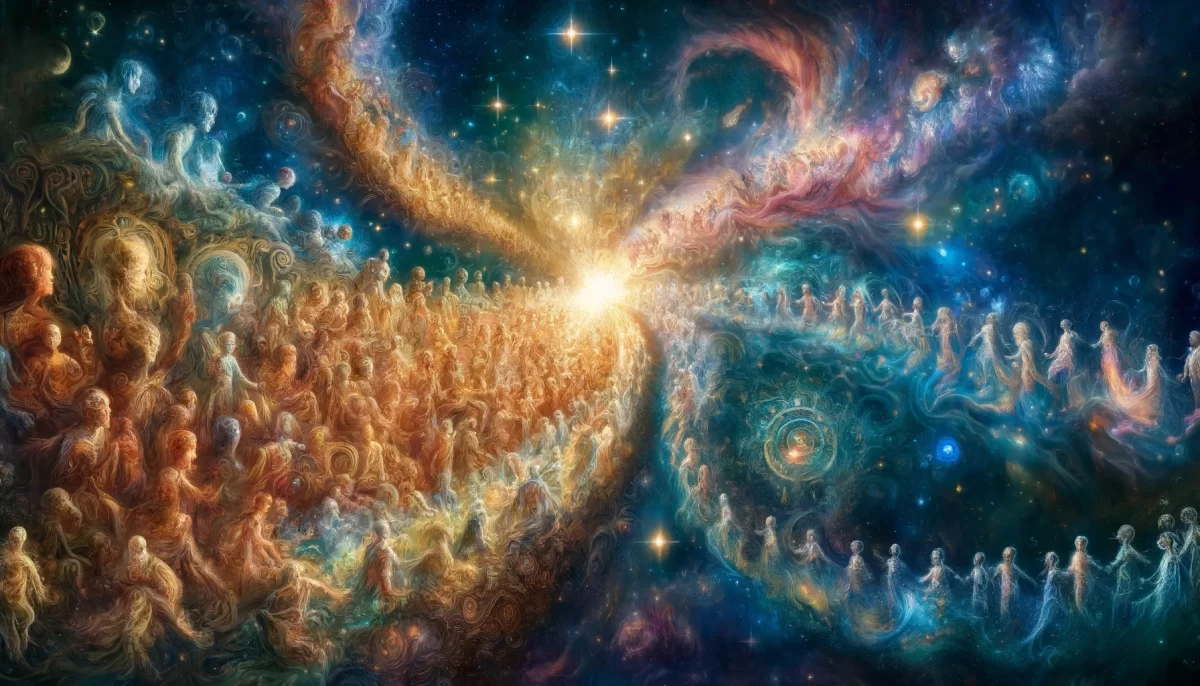
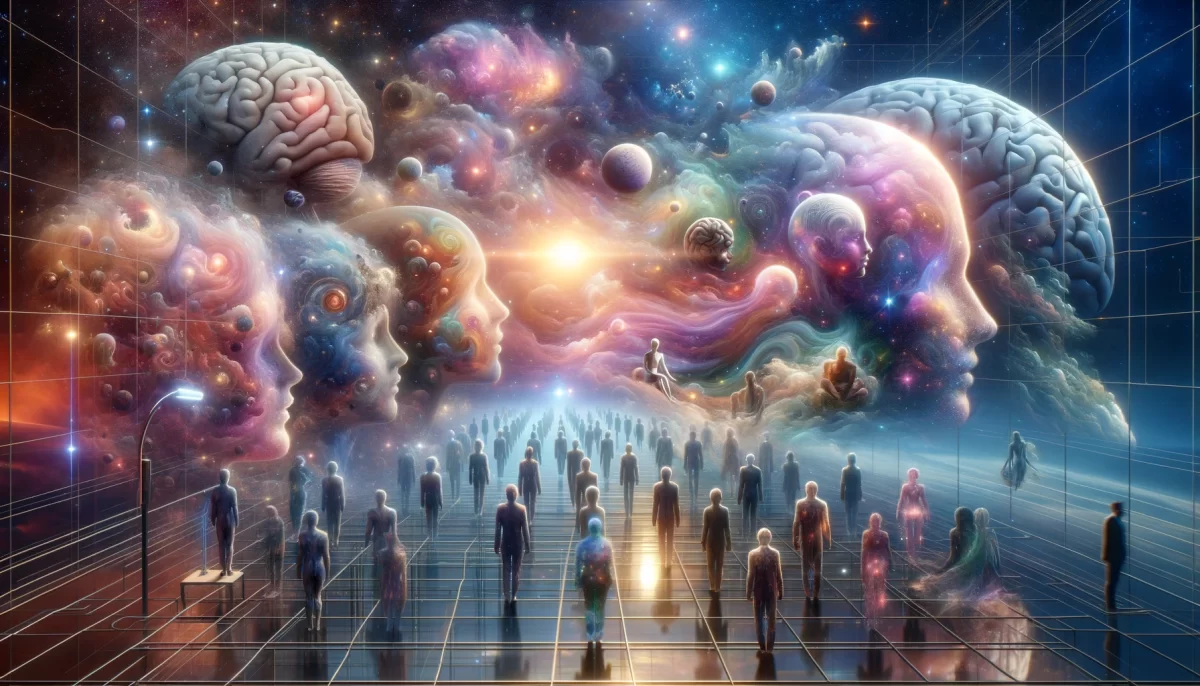
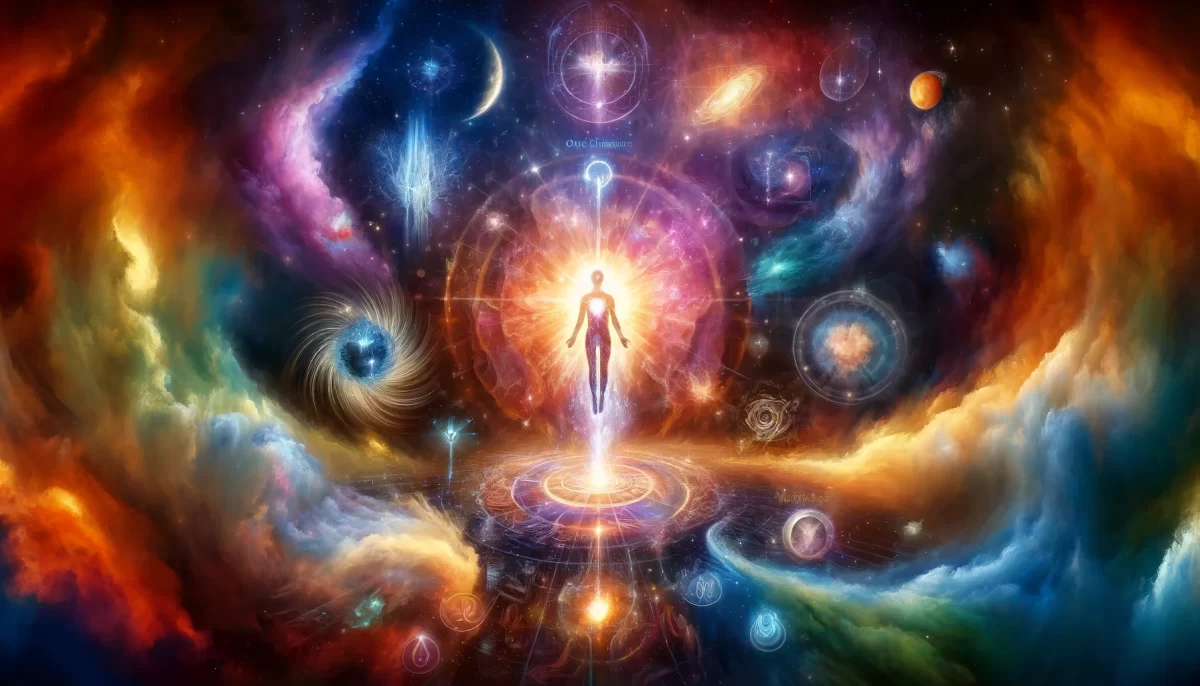
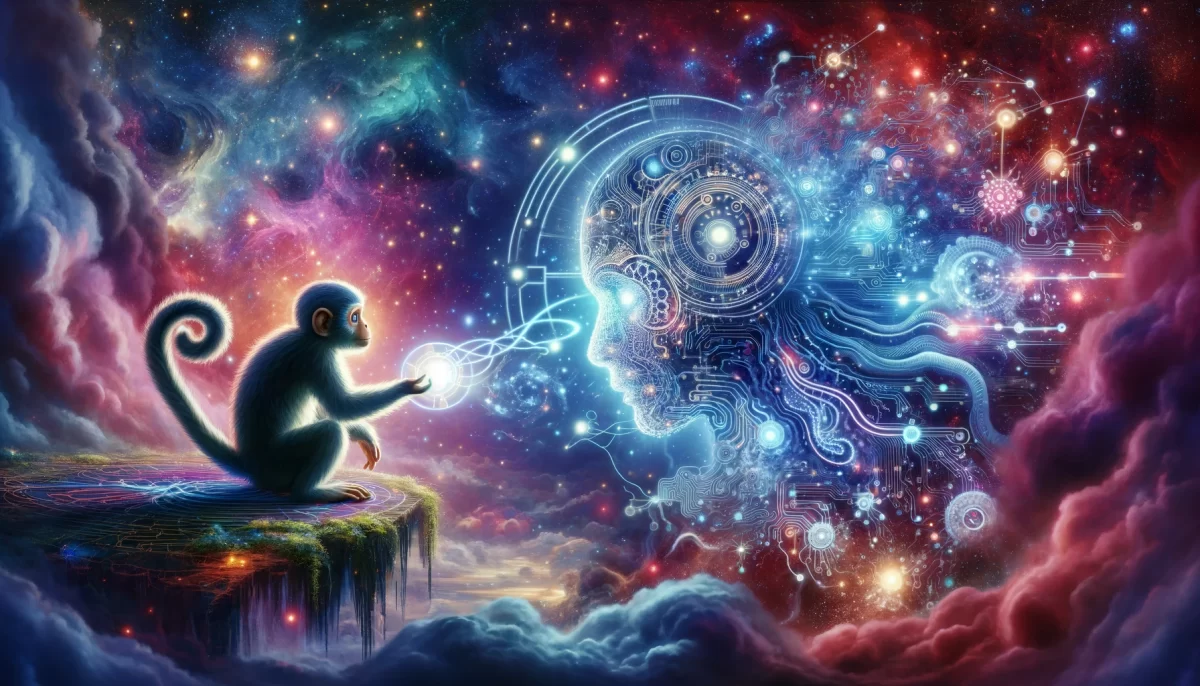
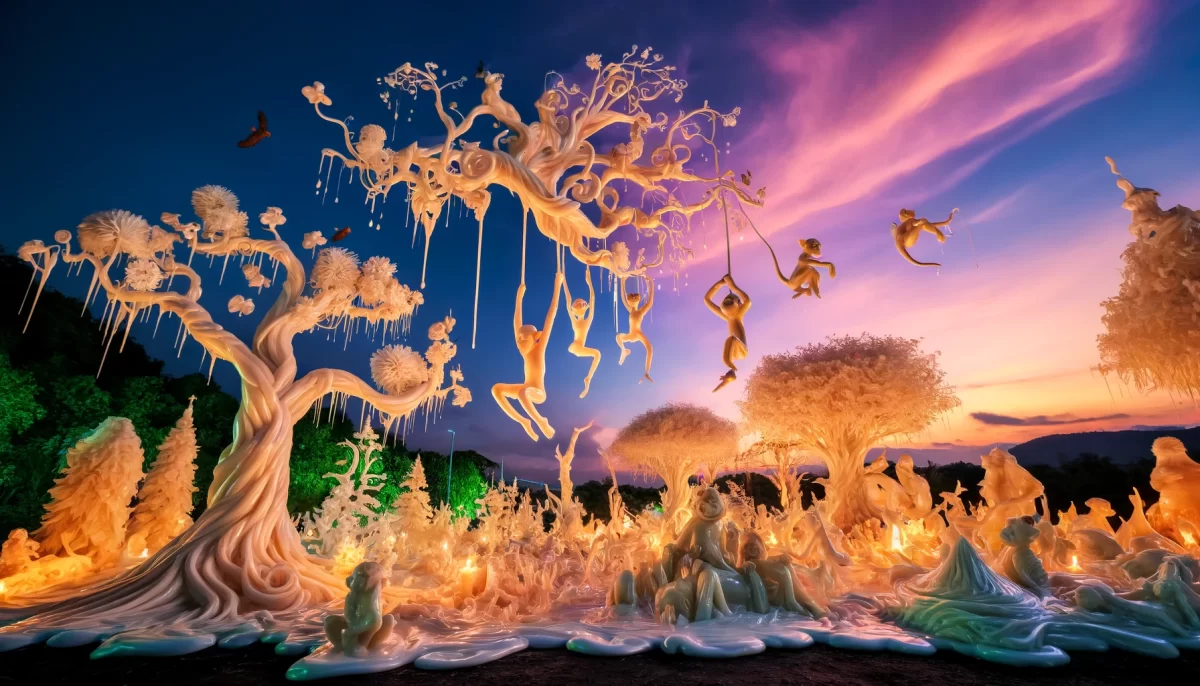
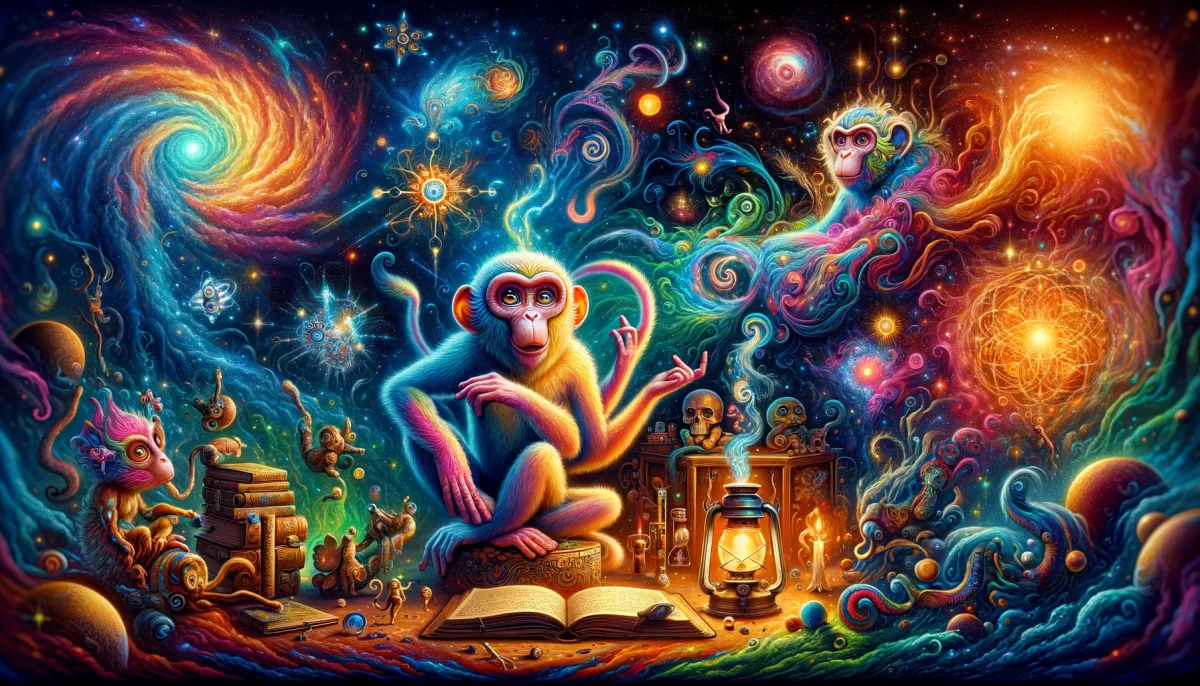
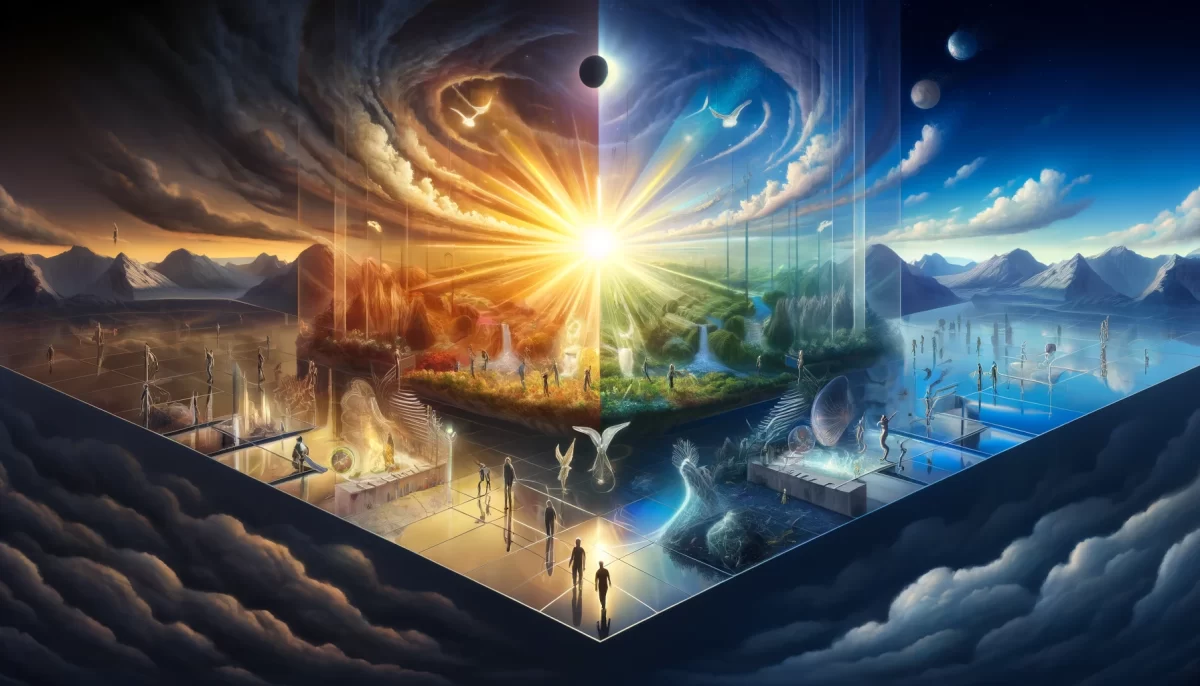

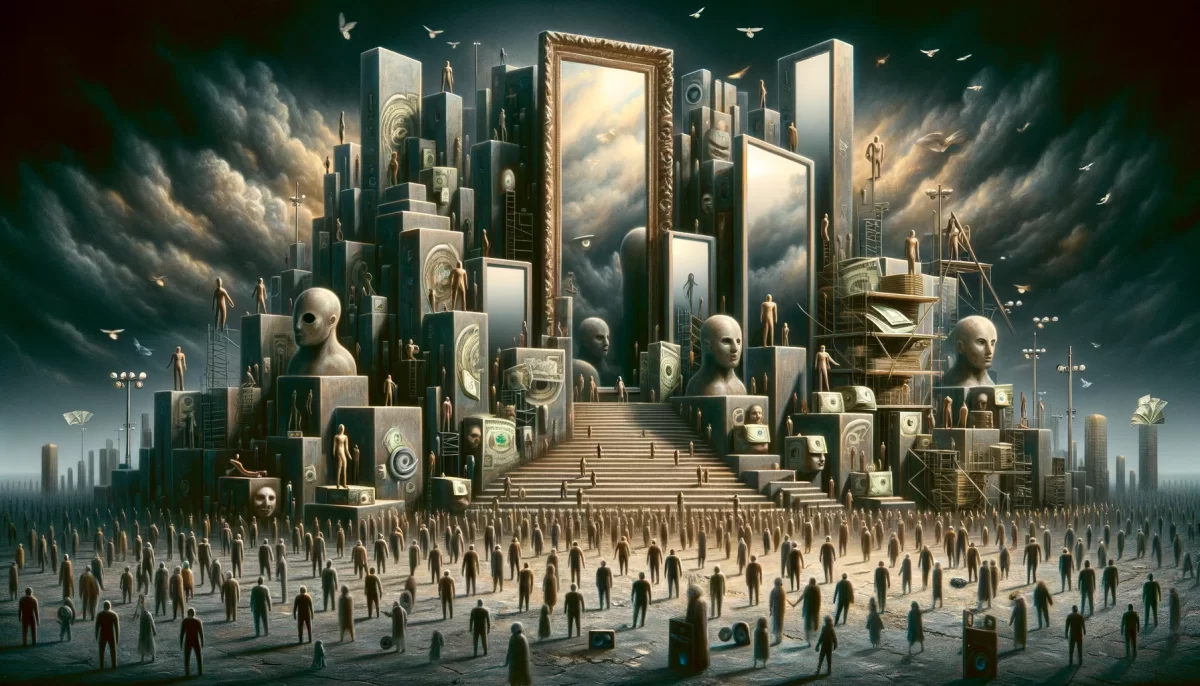

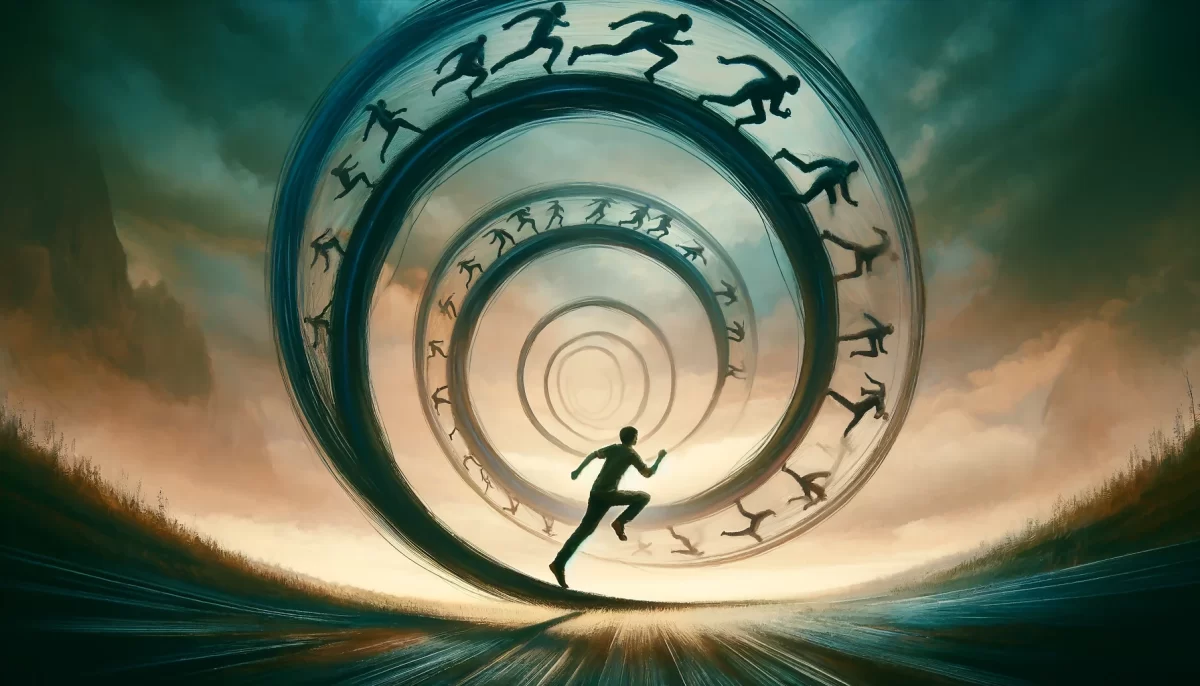
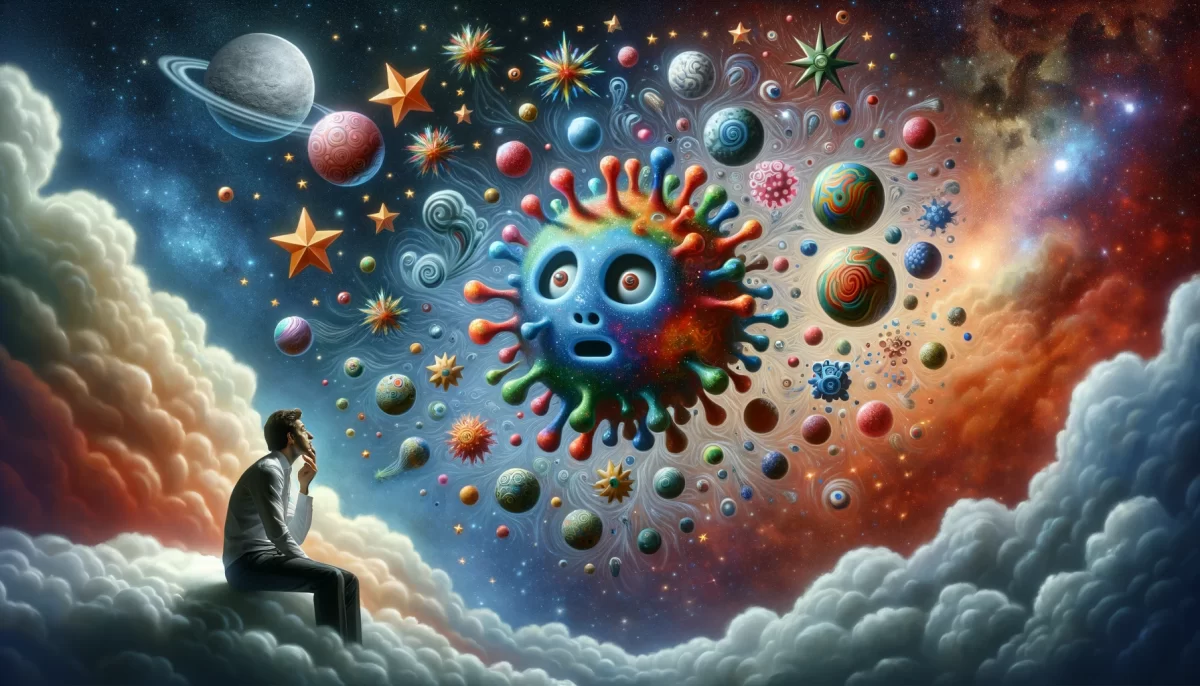


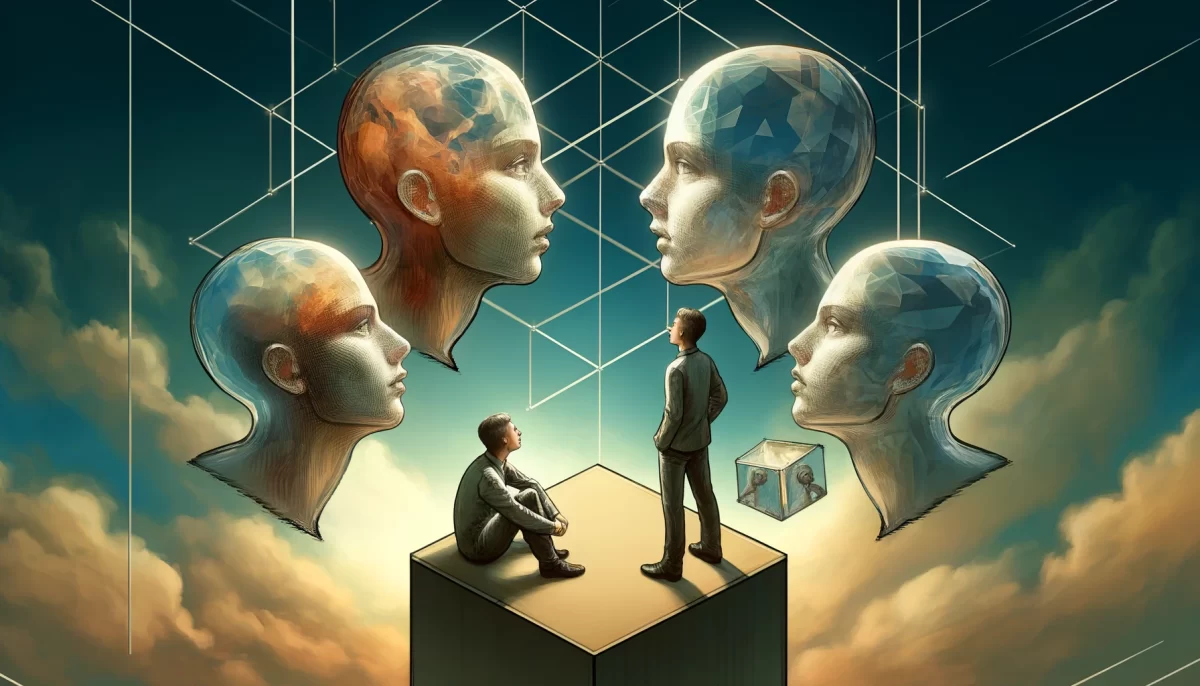
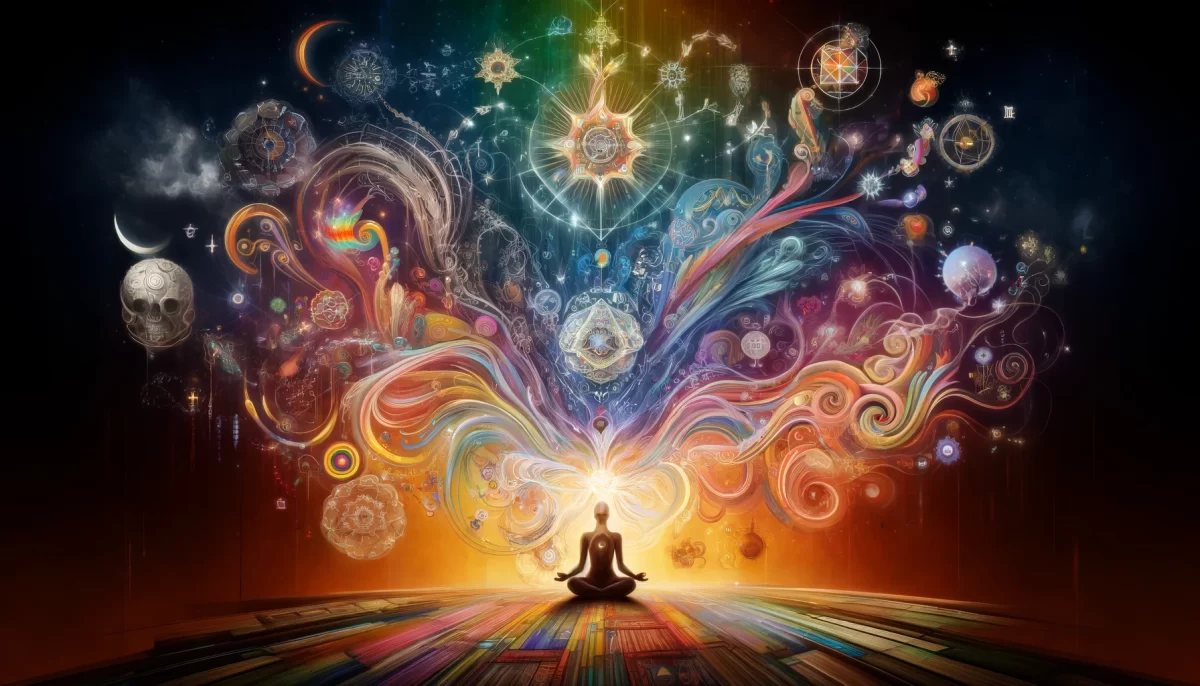
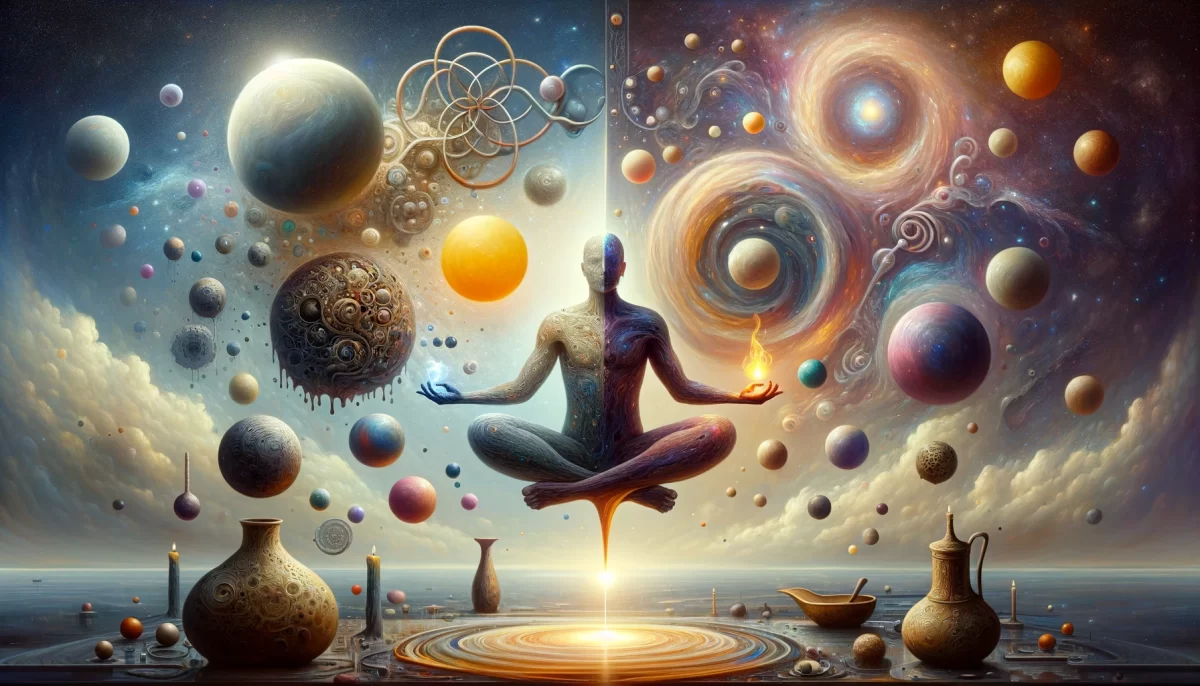

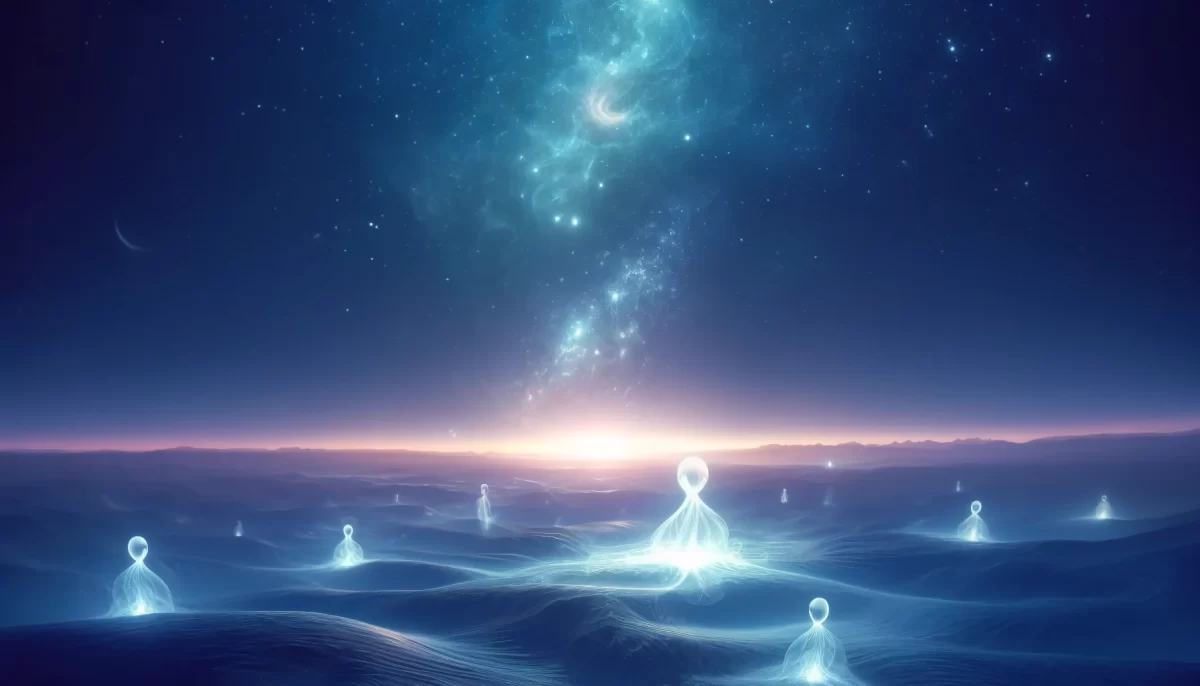
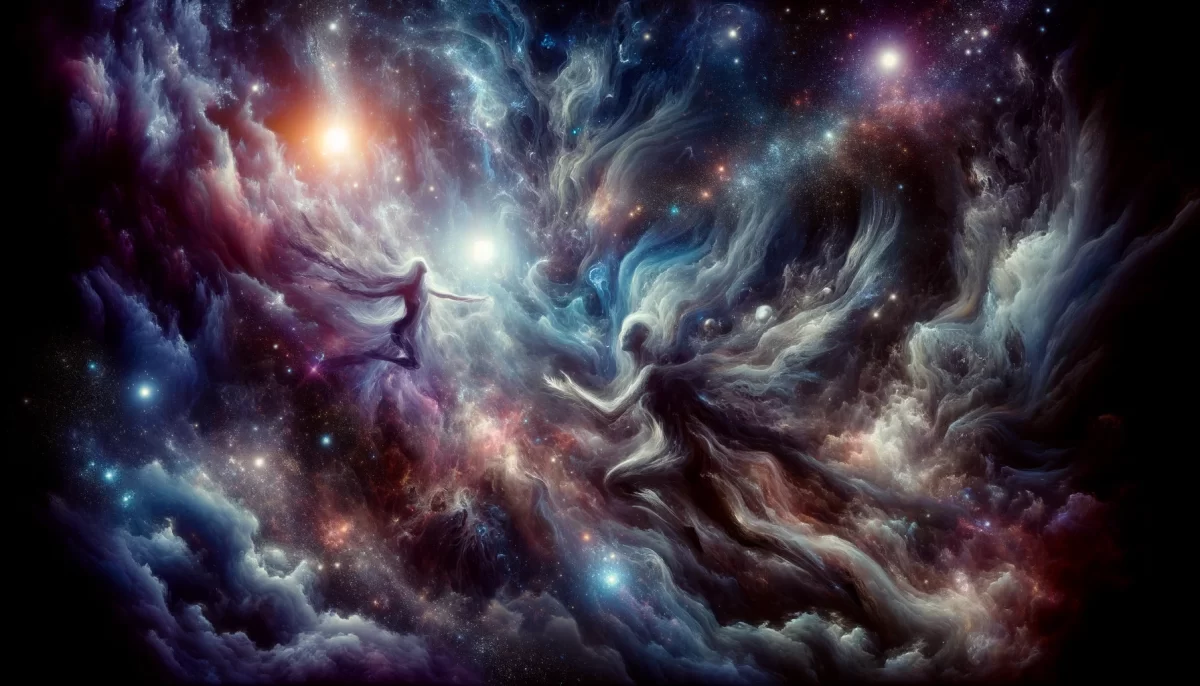

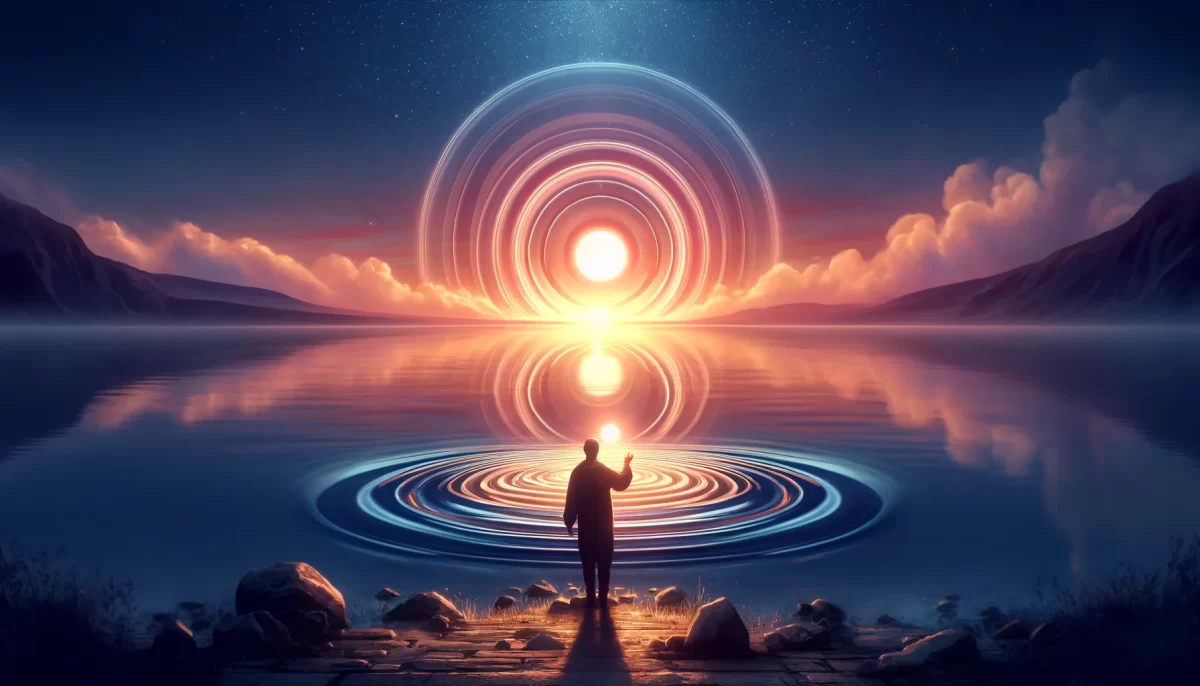
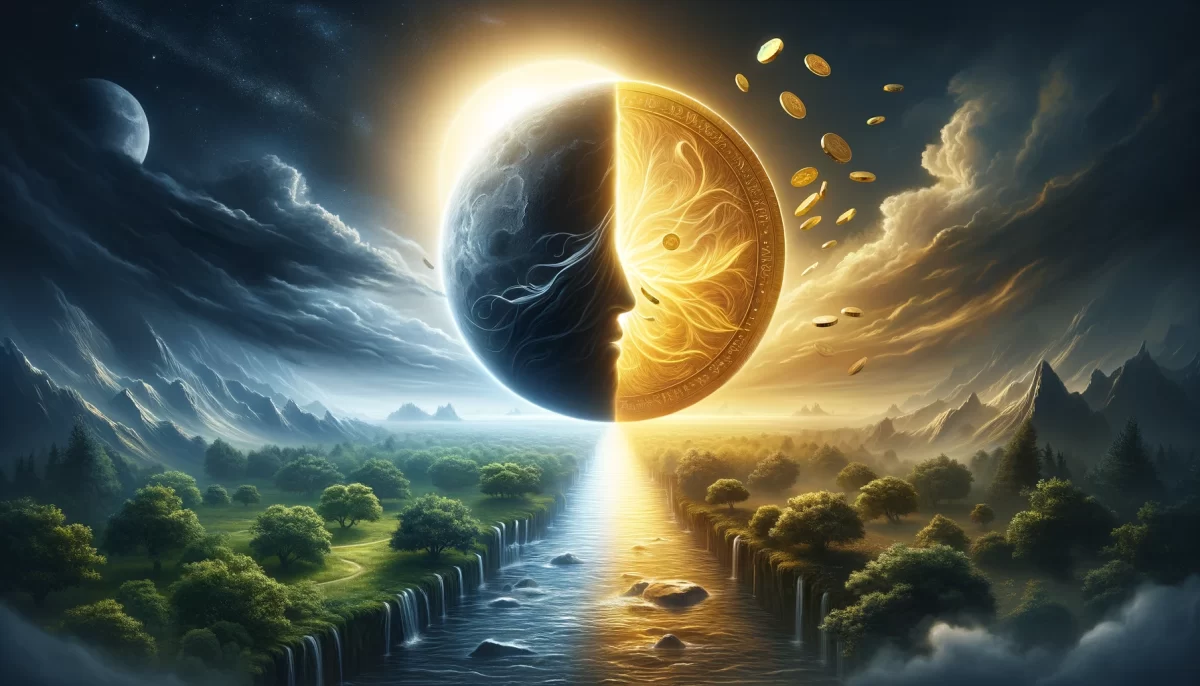
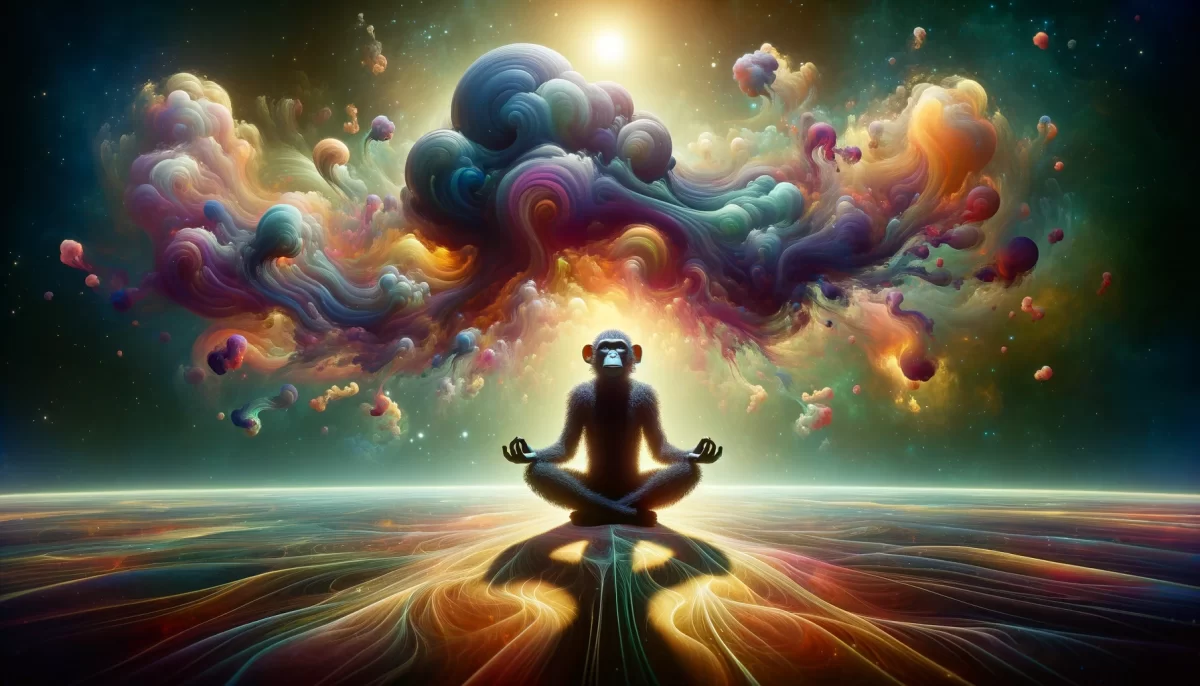
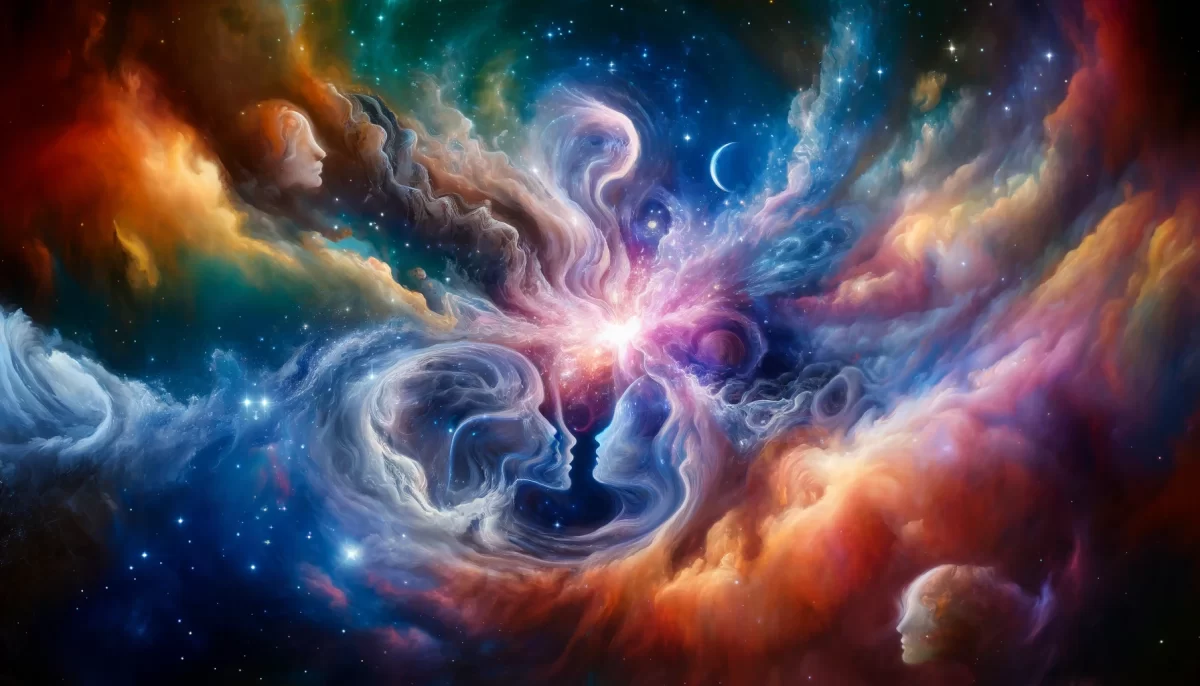
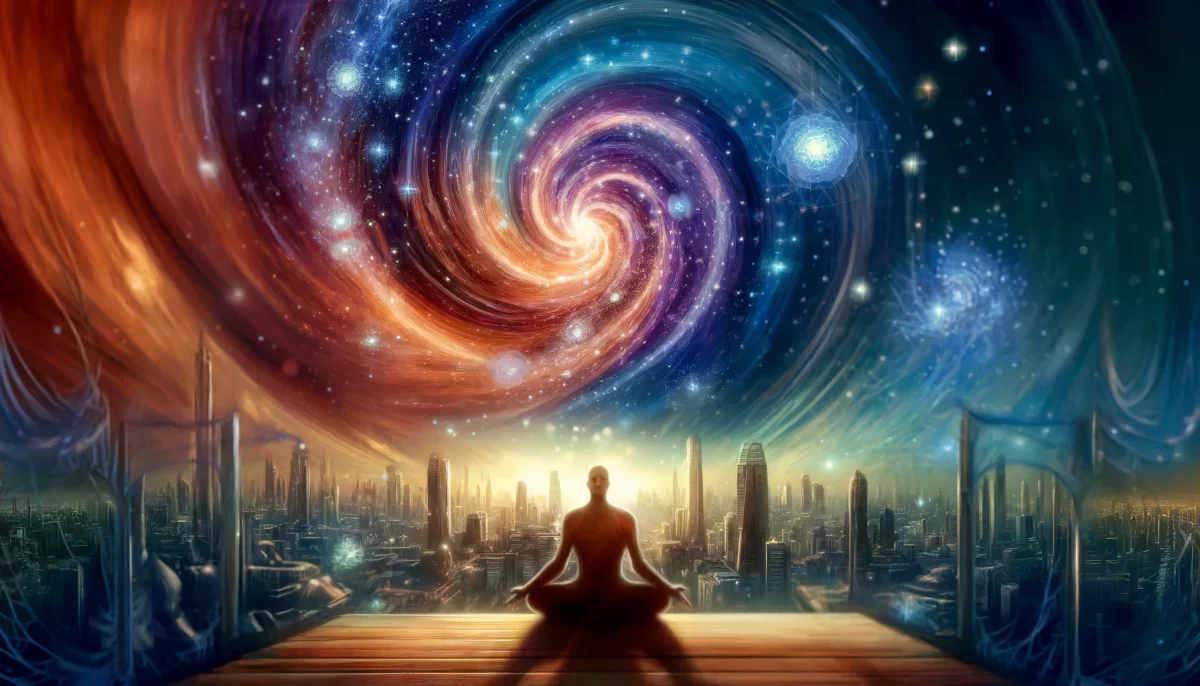
Leave a Reply